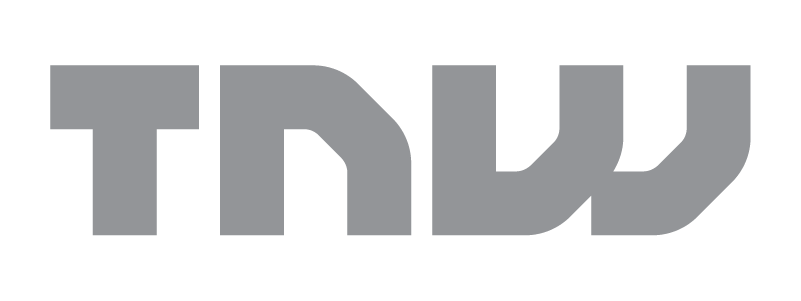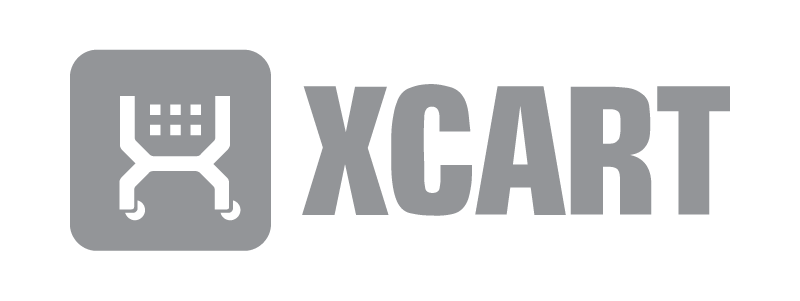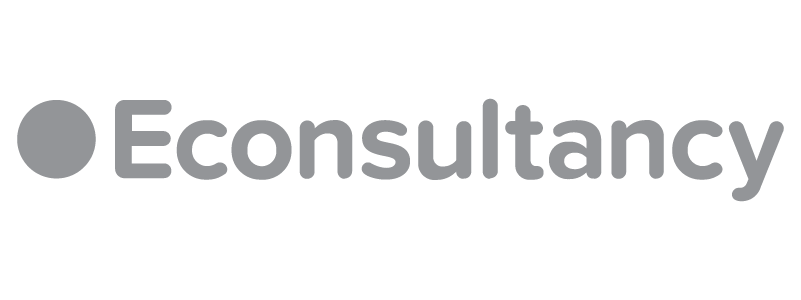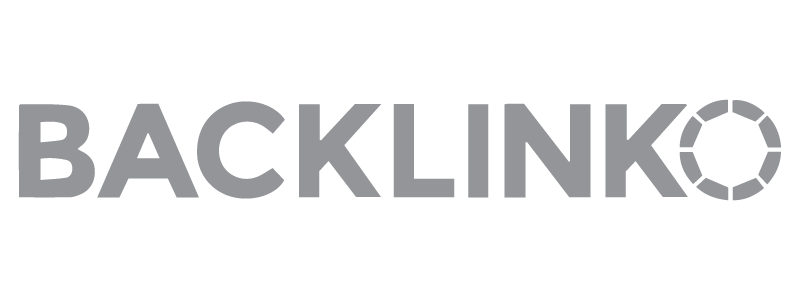Wholesaling is a standard link in the supply chain. Manufacturers produce goods and sell them to wholesale suppliers, who sell them to retailers, who sell them to consumers for profit.
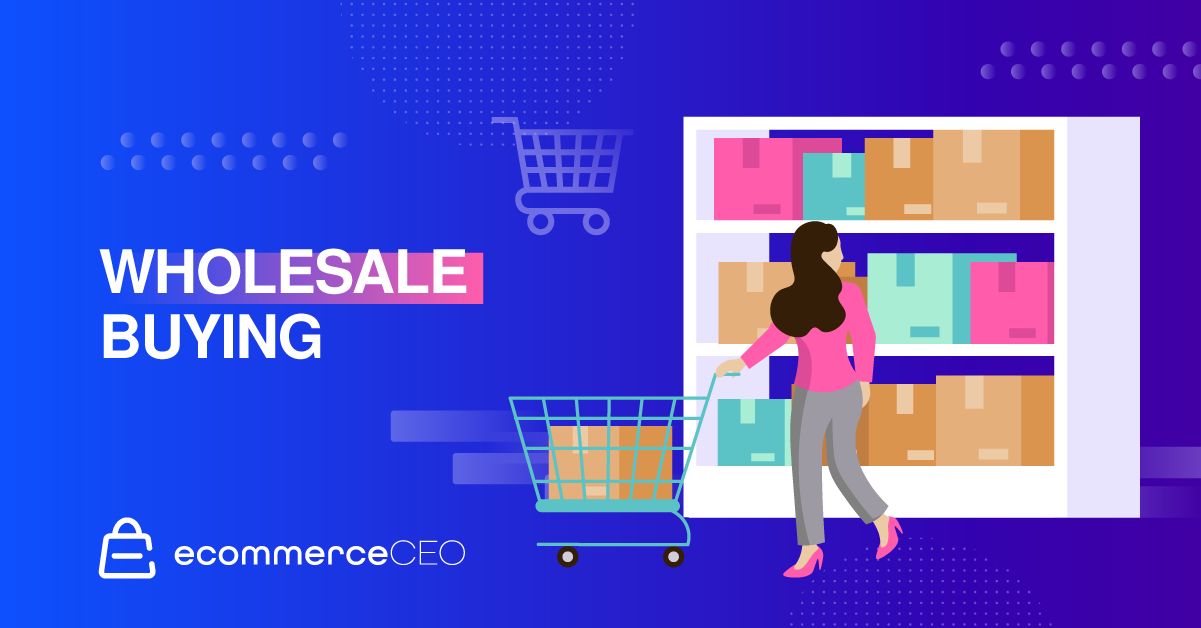
If you are a retailer looking to get inventory on the cheap, buying directly from manufacturers or wholesale suppliers is the way to go. However, this isn’t as simple as placing an order online and waiting for it to be delivered. Wholesale buying can be a complex B2B arrangement, especially when the deals are international.
This comprehensive guide will dive deeper into exactly how wholesaling works. We will also tell you what to look for in a good wholesaling partner and suggest some online marketplaces to get started.
Wholesale Buying Explained
Wholesaling is a relatively simple concept where a distributor handles the logistics of getting large quantities of manufactured goods to retailers. Although the idea is simple, it often involves large sums of money, meaning it is important to fully understand the process before diving in. Let’s start with the basics.
Wholesale Pricing
The concept behind wholesale buying is to order bulk quantities as early in their life cycle as possible. In fact, many wholesale companies have minimum order quantities. By ordering directly from the manufacturer or an early wholesale supplier, there are fewer markups, and buying in bulk also reduces the cost per item. The result is obtaining goods at low wholesale prices, leaving room for healthy margins.
Wholesale Vs. Dropshipping

Wholesale purchasing involves buying goods from the manufacturer or a wholesaler at a low price, storing those goods, then reselling them in smaller quantities at a markup to customers. Dropshipping is when you sell goods from your store, directing those orders to the manufacturer or a dropshipper for fulfillment. Dropshipping eliminates the need to store or handle these products, though the profit margins will be lower.
Requirements for Buying Wholesale
While anyone can purchase wholesale products, licensing is required to resell those products for a profit in the U.S. and other jurisdictions. Essentially, you need a tax ID and business license before you are legally permitted to operate such a business. Your state or local government body often handles reselling permits. In many cases, they come with tax exclusions, so you don’t have to pay B2B sales tax on wholesale goods acquired for reselling purposes.
Having this in place ensures your operations are legal and you meet all necessary requirements. Particularly, you will need to familiarize yourself with certain key terms and acquire essential licenses.
A Sales Tax License is imperative to understand, as it obligates you to collect sales tax from customers on behalf of the state. These funds are then returned to the state on a periodic basis, typically monthly, quarterly, or annually, depending on the rules of your state. This license also grants you the ability to buy products at wholesale prices without paying sales tax.
Another significant term in the wholesale business is a Resale Certificate. It is a document that proves you plan to resell the products you’re buying wholesale. Not all wholesale vendors require this, but it’s a good idea to have, as it can save you from paying sales tax on products you’ll be reselling to customers.
Lastly, a Wholesale License is needed in some states to purchase goods in large quantities directly from manufacturers or distributors. This license allows for the distribution of these products legally, creating a secure chain of selling and distribution.
In essence, having a business entity in place along with a sales tax license, a resale certificate, and potentially a wholesale license, depending on your state, are pivotal steps in equipping your business for purchasing wholesale products. They will lawfully allow you to function in the wholesale space, which ultimately leads to profitability.
Benefits of Buying Wholesale

Wholesaling is a natural and integral part of the retail business model. It solves the disconnect between when products are produced and hit the shelves (whether those shelves are physical or digital). For retailers, wholesalers are usually the most cost-efficient solution for supplying inventory. Here are the main benefits.
More Affordable
Buying products direct from the manufacturer, or as soon after in their lifecycle, will net you the best prices as these goods have passed through fewer hands (and markups). Buying in bulk also helps reduce individual unit prices as it is less work to ship you a full pallet than a handpicked number of items. Purchasing the largest bulk shipping quantity directly from the manufacturer will generally get you the most affordable prices to earn the highest margins.
Wider Product Selection
Manufacturers often don’t possess the infrastructure to be effective suppliers for a wide range of products. Wholesale suppliers order large quantities directly from manufacturers to resell in wholesale quantities for a profit. These companies essentially provide logistics and a large selection of quality products, acting as a middleman between manufacturers and retailers. They often operate massive warehouses stocked with goods from many manufacturers, which you can order from via an online store catalog.
Opportunity to Scale Up
Since wholesalers deal in huge quantities of products, they can generally meet the needs of retailers as they grow and expand. This is again part of their value as a bulk supplier, ensuring their customers receive the quantity of goods they need, when they need them.
Process of Buying Wholesale to Resell
Again, the concept of ordering wholesale goods is pretty straightforward, though, in practice, there are several factors you need to consider. Especially when it comes to international wholesale suppliers, the process can be somewhat complex. Keep these things in mind when getting started.
Choose Between a Global or Local Supplier
You’ll find that many wholesale suppliers are international. This is because most manufacturing takes place in China, and labor costs tend to be lower in other countries. Oftentimes, the discounted price of buying goods from international suppliers is lower than ordering domestically. However, international orders can present a number of challenges, including language barriers, complicated shipping (importing and customs), and less recourse in the event of a supply issue.
Pick Two to Three Suppliers
When it comes to any aspect of your business, putting all of your eggs in one basket can be risky. The same goes for choosing a wholesale supplier. Your company will rely heavily on receiving new products in the amounts and timeframes that you need them. Should something interfere with your ability to receive an order in time (international holidays, shipping delays, supply chain issues), you may end up with a shortage of products and be unable to complete orders, losing sales. Forming relationships with a few dependable suppliers ensures you have alternative options when obstacles arise.
Request Product Samples
Wholesale orders can be a significant investment. Before ordering a pallet of something for resale, it is best practice to receive a sample first to ensure it meets your expectations. This is especially true when ordering from international suppliers, as the quality of cheap goods can be questionable. It is also not unheard of for international scammers to take your money and run. Samples will help vet them before sending a large payment.
Negotiate Your Terms
Wholesale suppliers should be seen as long-term partners of your small business. As such, you should negotiate terms from the get-go to put you in a better position. You don’t want to jump the gun placing your first order, accepting whatever terms set forth by the supplier. Wholesalers are often able and willing to negotiate to get the sale, so talk about order quantities, prices, lead times, and shipping costs beforehand since you will probably be operating under these terms for the foreseeable future. It is easier to start off on the best ways than try to change the terms of an existing contract agreement (even if that is just their default method).
Pay for the Wholesale Goods
Unless you use a marketplace like Handshake, B2B wholesale purchasing is often not very intuitive, especially for international deals. It usually isn’t as simple as punching in your credit card and shipping address. You may need to set up wire transfers, currency exchange rates, and importation documents. This will all depend on the supplier and their location.
Where You Can Buy Wholesale Products
There are countless wholesalers all over the world supplying different types of products to every corner of retail. Unfortunately, finding them isn’t always easy, and not every industry has trade shows. Especially since international supply chains are so common, the best prices might lie on the other side of the ocean and through a language barrier. Here are some solutions for tracking down wholesale suppliers in your niche.
Handshake
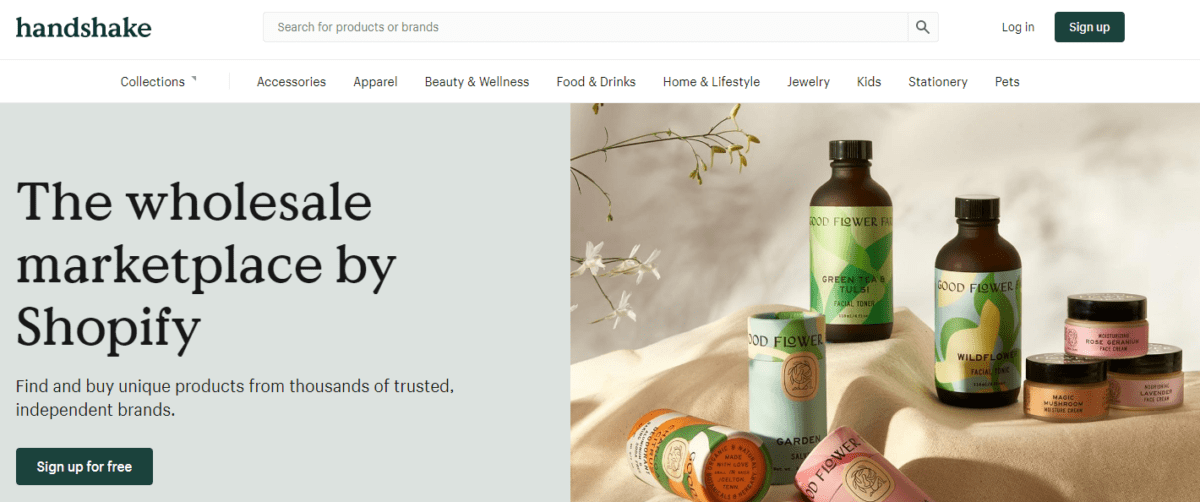
Handshake is a wholesale marketplace made by Shopify. It features qualified wholesalers and a streamlined process, making it easy for ecommerce businesses to source their goods. The buying process on Handshake is also simplified, avoiding many of the complexities of importing from international wholesalers.
Wholesale Marketplaces
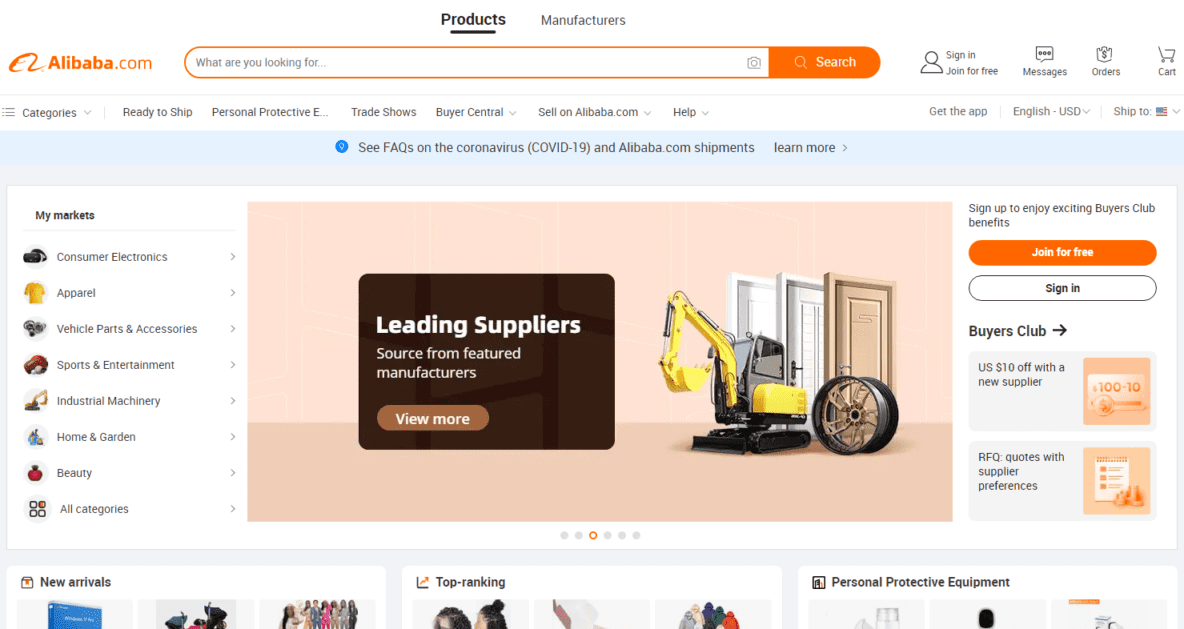
Popular international wholesale marketplaces include Alibaba and IndiaMART. Here you can connect with manufacturers and suppliers primarily based in Asia, offering cheap wholesale products on a wide range of items. Many B2B marketplaces help you connect with suppliers, though the actual business transaction can still be somewhat complicated.
Ecommerce Forums
If you want to find dependable wholesalers in your industry, consider joining online forums in your niche and conversing with industry peers. You can conduct market research by asking directly for suggestions and references or doing a little detective work to see where your competitors are ordering their goods. Surprisingly, many experts are willing to help, even if they are direct competitors. There are also often wholesale vendors in these forums looking to connect with new clients.
Facebook Groups
Similarly, Facebook groups focused on different ecommerce industries exist for networking and sharing ideas. Joining these groups will allow you to stay abreast of news in the industry and make valuable contacts, including wholesalers.
Google Search
Google is always a reliable place for research. Simply searching for wholesalers with keywords related to your niche can turn up websites and business directories for wholesalers who may have exactly what you’re looking for. Just be sure to vet these results with further research. Scammers create websites for the sole purpose of tricking legitimate businesses.
Additional Sites To Buy Products Wholesale
When it comes to buying products wholesale, your success largely depends on the trustworthy sources you choose for your purchase. Of immense importance is the process of thoroughly researching and vetting wholesale sites. Numerous factors are to be considered, such as the reputation of the site, customer reviews, and return policies.
Ideally, you’d want to select a site known for quality products and stellar customer service. Specifically, look for sites with high ratings and positive feedback from other businesses. Likewise, understand the site’s return policies; in case you receive defective items, you want to ensure you have the option to return or replace them. As you continue to expand your search, consider these additional wholesale sites:
- Kole Imports: A diverse, global direct import company focused on general merchandise and niche products.
- CKB Products: Wholesale distributor specializing in bulk purchases for lower prices.
- DiscountMugs is a wholesale provider of customized printed items, offering a wide range of products such as mugs, clothing, and office supplies at a discounted price.
- DHgate: A leading online platform for wholesale trade with China.
- GogoDropship: A platform that helps you find wholesale products to sell online.
Factors to Consider While Wholesale Buying
Aside from the payment terms, there are a couple of important considerations before and after making a deal.
Be Prepared to Negotiate
Wholesale suppliers tend to operate much differently than retail stores. They deal in large-scale orders, with specific payment terms, which can amount to large quantities of cash changing hands. They are essentially the salesmen of the B2B world, meaning B2B sellers are often willing to negotiate terms and pricing to make a sale. These terms will directly impact your profitability, so be prepared to negotiate.
Keep Storage Space Organized
When getting your feet wet in the world of wholesale buying, it can be easy to underappreciate the logistics of buying products in bulk. The last thing you want is to have a pallet show up at your doorstep with no good way of moving or storing it. Unless you have access to a forklift, be prepared to unwrap, unpack, and shelve a lot of units, which can be tiresome work. Also, make sure you have a storage solution that allows you to easily access and pull items for sales orders.
Tips for Choosing a Wholesaler
While making comparisons on paper is important (prices, shipping times, etc.), the value of a legitimate wholesaler is as much about their service as products. The goal is to build a steady and long-lasting business relationship, so give some thought to whom you want to supply your reselling business for the foreseeable future.
Be Sure the Company is Reliable and Trustworthy
When vetting your wholesale partners, the most important thing is to ensure their legitimacy and reliability. Prices and terms can always be revisited, but unfulfilled orders or misrepresentation can cost you. Look for reviews and references to ensure the company is legitimate, and try to get first-hand impressions from other businesses that work with them.
Don’t Overlook Customer Service
Should anything go wrong with an order, it can be a considerable expense for the bulk items and shipping costs. You want your wholesale business partner to be reliable in not making mistakes, but also have high-quality customer service to correct any issues before they impact your bottom line.
Weigh Your Options
It is rare to find that one wholesaler is superior to another in every aspect. The nature of competition implies that each will have its own strengths and weaknesses. This could be a better selection, lower prices, faster shipping times, or better service. Consider which factors are most important to you and diversify your suppliers so you can check as many boxes as possible.
Go For the Experts
One important factor you don’t want to overlook is the professionalism and expertise of a supplier. This might not immediately impact things on paper, but a supplier with expert knowledge of the products they offer is a good sign. Conversely, a supplier who doesn’t seem to have a good understanding of the wholesale products they are selling can be a major red flag.
Inquire About Lead Times
While lead times don’t directly affect profitability, they can have a significant indirect impact on your operational capabilities. For example, if you suddenly see a spike in consumer demand for an item and want to place a supply order ASAP, a wholesaler with long lead times may result in you running out of stock. This can mean lost sales and unhappy customers, which can cost you in the long run.
Go Over the Ordering Process
Ease of ordering is another indirect but important factor. For example, automating reordering through your POS system will save you time and effort whenever you need new stock. Generally, domestic orders will generally be much more straightforward than international ones, though even international suppliers can vary in their wholesale buying process.
Plan Your Budget and Inventory
When it comes to ordering wholesale, quantity is key. In most cases, ordering more quantities is one of the best ways to get better prices. However, don’t get overzealous about ordering massive amounts if that means tying up your liquid funds or ending up with too many wholesale products that aren’t selling. Use market research data about product demand, sales history, and price points to determine when and how much inventory to order.
Ask Around for Recommendations
Don’t be sold on a partnership just from the promises of a wholesaler. Seeking out references to verify claims about service and satisfaction will help you know whether a wholesaler’s other customers are happy with tier service. If you can’t find anyone else dealing with a particular wholesaler, that itself may be a red flag.
FAQs
Is It Cheaper To Buy Wholesale Or Retail?
If you are willing to order bulk quantities of a product, wholesale prices should always be cheaper than retail prices. This is how most retail models work: retailers order wholesale items in bulk, then resell them individually at a higher price.
How Much Can Beginner Wholesalers Make?
The amount a wholesale business can make is wholly dependent on its starting capital and clients. Wholesaling is a numbers game with small margins and large quantities. The higher quantities you can buy, the more you can sell, meaning more revenue earned. Of course, this also relies on customers buying your wholesale goods.
Do I Need A Business License To Buy Wholesale?
You technically do not need a business license to buy wholesale, but if you plan on reselling wholesale goods, you will need a business license, tax ID, and reseller’s permit in most jurisdictions.
Time to Start Wholesale Purchasing
Now that you know where to look and what to look out for, you are ready to start tracking down legitimate wholesalers to supply your operation. Remember to have things on the business end ironed out, including necessary licensing and permits.
Try to find a few distributors who offer good prices and service for the wholesale products you need to ensure you aren’t at the whim of a single entity’s decisions and schedule. After that, it is all about negotiating fair terms that leave you plenty of room for decent profit margins.
Building a long-term relationship with your supplier benefits you both, ensuring a long and profitable business partnership. Just be sure to factor in all overhead costs to ensure you earn an adequate profit margin after importing, storing, and selling their goods.


